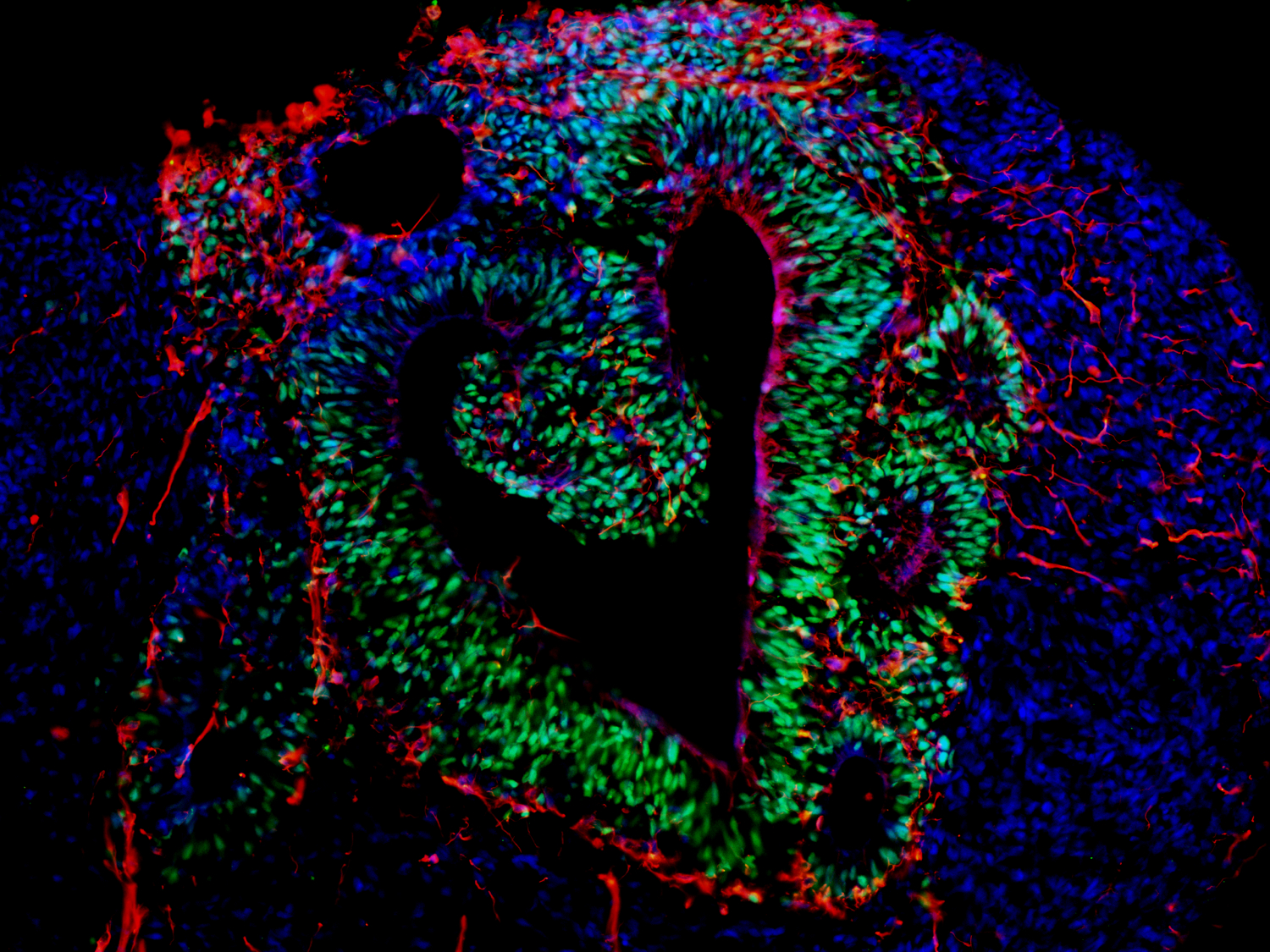Single cell-based diagnostics – An innovative strategy to improve European healthcare
How do disease-causing processes begin at the molecular level? The international LifeTime consortium, which includes the Institute of Bioorganic Chemistry of the Polish Academy of Sciences, has taken the challenge to investigate the genesis of five groups of diseases by looking at the condition of individual cells. The innovative strategy, presented in the Nature journal, has the potential to revolutionize European healthcare system.

Image showing sections of cerebral brain organoids derived from pluripotent stem cells (photo: Agnieszka Rybak-Wolf, MDC/LifeTime)
The founders of the LifeTime initiative, including researchers from 17 renowned research organizations as well as clinicians and industry leaders across Europe, set themselves the goal of popularizing and improving the effectiveness of personalized treatment. Scientists will look at five major disease classes, including cancer, neurological, infectious, chronic inflammatory and cardiovascular diseases. The aim is to create a new age of personalized, cell-based interceptive medicine for Europe. The new approach will focus on identifying undesirable mutations in individual cells before they affect the functioning of the whole organism.
Medicine of the future
During lifetime, all cells in our body undergo developmental processes. Sometimes, however, they do not run properly, giving rise to mutations, which if not repaired accumulate and cause diseases. Despite the progress of medicine, the effectiveness of treatment depends largely on the severity of the condition. To support the early diagnosis of complex illnesses such as cancer or neurodegenerative diseases the LifeTime initiative, combining the latest achievements in biology with powerful analytical capabilities of artificial intelligence (AI), was launched. It aims to develop several new and existing technologies and apply them together to understand how diseases evolve. Researchers will use single-cell technologies to study patient samples by looking at molecular changes at individual cells. Then AI will analyze thousands of samples to identify the reoccurring features of each illness. Understanding cellular mechanisms will help scientists and doctors to predict the occurrence of the disease and select the most effective therapy to curb disease progression. For this purpose, close collaboration between European research units and medical institutions is necessary.
The role of PAS Institute
Professor Marek Figlerowicz, director of the PAS Institute of Bioorganic Chemistry in Poznań, Dr. Paulina Jackowiak and Dr. Natalia Koralewska are among the authors of the “LifeTime and improving European healthcare through cell-based interceptive medicine” article published in Nature. The Poznań institute is a co-originator of the LifeTime initiative and since 2018 it has been acting as the LifeTime national node, in which the PAS Institute of Biochemistry and Biophysics, the PAS Institute of Experimental Biology and the International Institute of Molecular and Cell Biology in Warsaw have also been associated. The PAS Institute of Bioorganic Chemistry together with the PAS Institute of Experimental Biology form the National Imaging Center for Biological and Biomedical Sciences, combining an integrated platform for multidimensional imaging of biological processes with an advanced IT infrastructure for data collection and processing.
About the initiative
LifeTime is a pan-European research initiative that aims to change healthcare strategy by identifying and treating disease causes at the earliest possible (cellular) stage instead of treating their symptoms. The LifeTime community brings together over 100 of Europe's best research institutes, hospitals, and 80 pharmaceutical, biomedical and biotechnology companies. The project is financed by the Horizon 2020 Program and its coordinator is the Max Delbrück Center for Molecular Medicine in the Helmholtz Association.
LifeTime’s detailed plan on how to implement cell-based medicine within the next decade has been recently published in the Nature journal and in the LifeTime Strategic Research Agenda.
Learn more about the LifeTime initiative https://lifetime-initiative.eu/
Source of information: PAS Institute of Bioorganich Chemistry
Source of graphic: MDC/LifeTime
